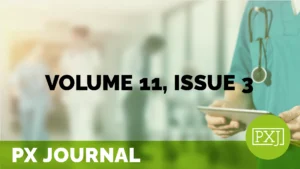Advancing PFCC through Executive and Advisor Leadership

Sue Collier, MSN, RN, FABC, Performance Improvement Specialist Patient-Family Engagement, NC Quality Center
The demands for performance improvement in the healthcare industry require visionary, effective and patient-family centered leadership. This presentation will use the IHI Framework for Leadership for Improvement to describe leadership actions and skills that advance patient-family centered care practices across a variety of settings. Content will emphasize how partnerships are effective in guiding priority setting and action plan development and evaluation. These examples will also demonstrate the skills needed by healthcare leaders to successfully engage advisors as change agents. The presentation will embrace the application of strategies across multiple experiences of care, including multi-hospital and community-based systems. It will share case studies and lessons learned from the literature and individual experiences and will encourage participants to complete a structured self-assessment and action planning tool.
Related content
-
 Patient Family & Community Engagement
Patient Family & Community EngagementExperiences of Psychosocial Support in Group Rehabilitation Interventions from Adults with Chronic Conditions – A Qualitative Systematic Review
Psychosocial support in group rehabilitation interventions can provide adequate social support and a basis for self-management. Both healthcare professionals and peers have invaluable roles in helping patients with chronic conditions adapt to their life situation. Interventions should facilitate knowledge sharing and help patients take responsibility for self-management. Furthermore, participants should be able to choose the
Learn more -
 Patient Family & Community Engagement | Quality & Clinical Excellence
Patient Family & Community Engagement | Quality & Clinical ExcellenceWhat Healthcare Providers Need to Know About Newcomer Health Equity
2pm ET / 1pm CT / 12pm MT / 11am PT – Newcomers are a vital yet often misunderstood segment of the population that healthcare providers serve. This webinar explores the landscape of newcomer health equity in Canada and the United States, offering valuable insights into the challenges faced by this vulnerable group. Attendees will
Learn more -
 Patient Family & Community Engagement
Patient Family & Community EngagementBlack Voices On Gynecologic Cancer: Understanding Experiences (BVOGUE)
The voices of Black patient advocates are often absent from research studies. By centering these voices, new strategies can be identified to address and positively impact disparities across the clinical care spectrum, from diagnosis to survivorship. The study aims to identify common and unique experiences of racism and bias among Black patients with gynecologic cancer.
Learn more
